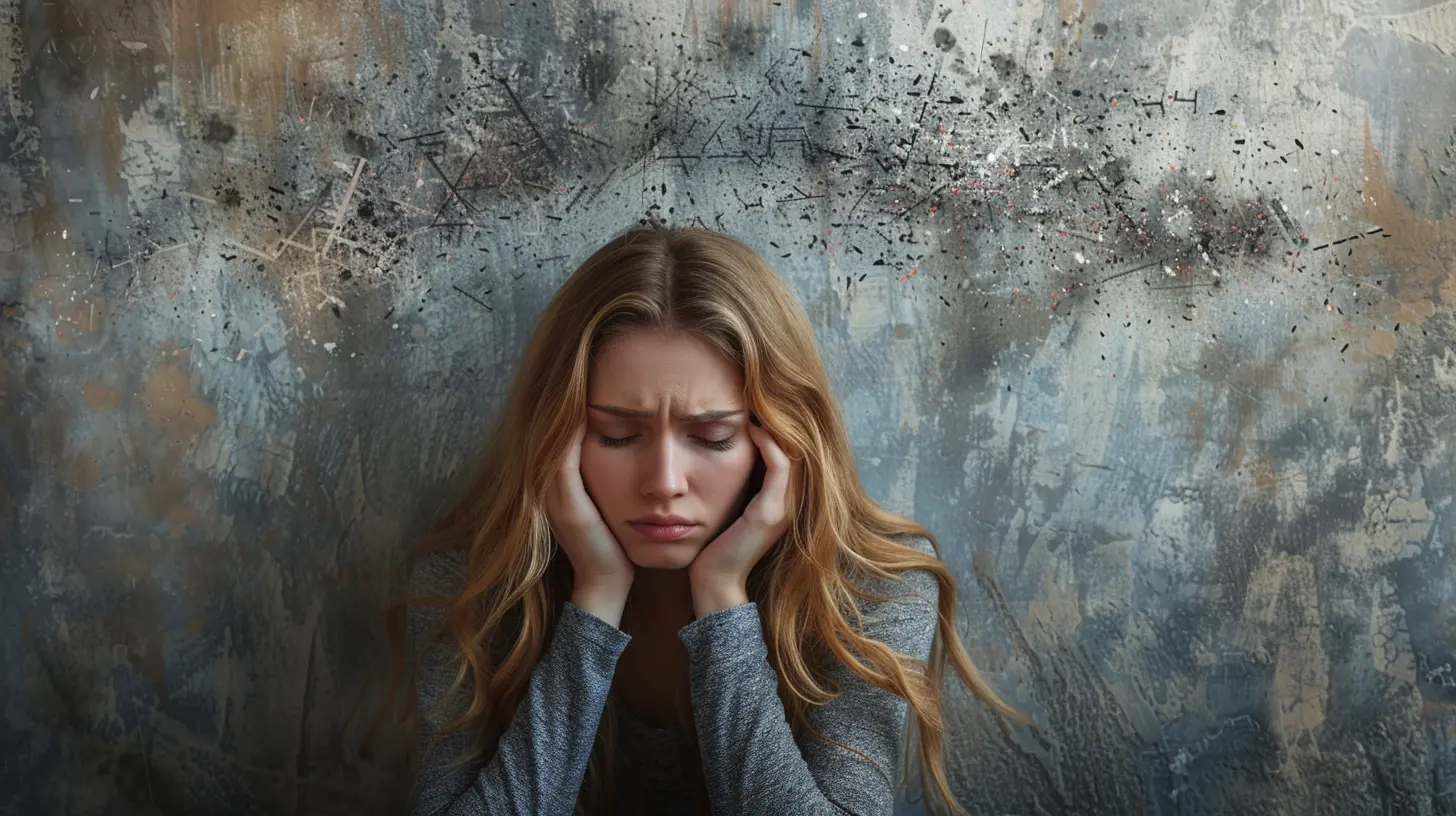Stress and Anxiety: Understanding the Difference and How to Cope
1 June 2025
Stress and anxiety—you’ve probably used these words interchangeably at some point. But did you know they’re not the same thing? While both can make your heart race and your mind spin, they stem from different causes and affect you in unique ways.
In this article, we’ll break down what stress and anxiety really are, how they impact your daily life, and most importantly, how to manage them. So, if you’ve been feeling overwhelmed, stick around—this might be exactly what you need to regain control. 
Understanding Stress vs. Anxiety
What is Stress?
Stress is your body's reaction to a challenge or demand. It’s often triggered by external factors like work deadlines, financial pressure, or relationship conflicts. Think of it as your body’s built-in alarm system, designed to help you react to threats.When you're stressed, your body releases cortisol and adrenaline, which prepare you to either fight or flee. This response can be helpful in short bursts—like when you're cramming for an exam or preparing for an important presentation. But when stress becomes chronic, it takes a toll on your physical and mental health.
Common Symptoms of Stress:
- Irritability or mood swings- Muscle tension and headaches
- Trouble sleeping
- Difficulty concentrating
- Increased heart rate
What is Anxiety?
Anxiety, on the other hand, isn’t always caused by an external stressor. It's a persistent feeling of worry or fear that doesn’t go away even when there’s no immediate threat. While stress is usually a response to something happening right now, anxiety is more about worrying over what could happen in the future.A little anxiety is normal—like feeling nervous before a big job interview—but when it becomes overwhelming or constant, it may develop into an anxiety disorder. Unlike stress, which disappears once the situation is resolved, anxiety tends to linger and affect your daily life.
Common Symptoms of Anxiety:
- Excessive worry, even without a clear reason- Feeling restless or on edge
- Rapid heartbeat or shortness of breath
- Digestive issues (nausea, upset stomach)
- Avoiding certain situations out of fear

The Key Differences Between Stress and Anxiety
| Factors | Stress | Anxiety ||---------------|--------|---------|
| Cause | Triggered by external events (deadlines, conflicts) | Often internal and persistent, with no obvious trigger |
| Duration | Temporary, goes away when the stressor is resolved | Can be long-term, lingering even when there’s no real threat |
| Emotional Response | Feels overwhelmed or pressured | Feels constant fear or worry |
| Physical Symptoms | Muscle tension, headaches, fatigue | Restlessness, nausea, rapid heartbeat |
| Management | Can be reduced by eliminating the stressor | Requires coping strategies and sometimes professional support |
Now that we know the difference, let’s dive into how you can manage and cope with both stress and anxiety. 
How to Cope with Stress and Anxiety
1. Identify the Triggers
The first step to managing stress or anxiety is recognizing what’s causing it. Keep a journal or use a mental health app to track situations that make you feel overwhelmed. Once you identify patterns, you’ll be better equipped to handle them.2. Practice Deep Breathing and Meditation
Ever noticed how your breathing changes when you’re stressed or anxious? Shallow, rapid breaths make it worse. Practicing deep breathing exercises, such as the 4-7-8 technique (inhale for 4 seconds, hold for 7, exhale for 8), can calm your nervous system instantly.Meditation is another game-changer. Even just 5–10 minutes a day of mindfulness meditation can lower stress and anxiety levels over time.
3. Exercise Regularly
You’ve probably heard this a million times, but seriously—exercise works wonders. Physical activity releases endorphins, which act as natural stress relievers. Whether it’s going for a brisk walk, hitting the gym, or dancing in your living room, find a movement you enjoy and make it part of your routine.4. Get Enough Sleep
Lack of sleep makes stress and anxiety worse. Aim for 7-9 hours of quality sleep every night. Try creating a bedtime routine—dim the lights, put away screens, and listen to calming music. Your brain (and body) will thank you.5. Limit Caffeine and Alcohol
Caffeine and anxiety? Bad combo. While that morning coffee might give you a boost, too much caffeine can make anxiety symptoms worse. The same goes for alcohol—it might feel like it helps in the moment, but it can heighten anxiety in the long run. Try cutting back and see how your body responds.6. Stay Connected with Loved Ones
Talking to a friend or family member can make a huge difference. Venting about your worries helps you process them, and knowing you're not alone provides comfort. If you're feeling overwhelmed, don’t hesitate to reach out for support.7. Set Boundaries and Prioritize Self-Care
Feeling constantly drained by work or personal obligations? You might need to set some boundaries. Learn to say "no" to things that add unnecessary stress. Make time for activities that genuinely relax you—reading, painting, taking long baths, or even just doing nothing.8. Consider Therapy or Counseling
If stress or anxiety is interfering with your daily life, seeking professional help is a smart choice—not a weakness. Therapists can provide valuable coping strategies, and in some cases, medication may be helpful. Cognitive Behavioral Therapy (CBT) is particularly effective for anxiety.9. Try Grounding Techniques
When anxiety hits, grounding techniques can bring you back to the present moment. One popular method is the 5-4-3-2-1 technique:- 5 things you can see
- 4 things you can touch
- 3 things you can hear
- 2 things you can smell
- 1 thing you can taste
It’s a simple yet effective way to calm your mind and regain control. 
When to Seek Professional Help
While stress and occasional anxiety are normal, you should consider seeking help if:- Your anxiety is so intense that it disrupts daily activities.
- You experience frequent panic attacks.
- You rely on unhealthy coping mechanisms (alcohol, drugs, avoidance).
- You feel hopeless or depressed.
Mental health is just as important as physical health. If you're struggling, speaking to a mental health professional can lead you toward real solutions.
Final Thoughts
Understanding the difference between stress and anxiety is key to managing both effectively. While stress comes and goes based on external factors, anxiety tends to be more persistent and deeply rooted. The good news? You can take control.By implementing healthy coping strategies, setting boundaries, and reaching out for support, you can navigate life’s challenges with more ease. And remember—you don’t have to do it alone. If things feel overwhelming, professional help is always a great option.
So, next time you find yourself feeling anxious or stressed, take a deep breath. You’ve got this!
all images in this post were generated using AI tools
Category:
Stress ManagementAuthor:

Gloria McVicar
Discussion
rate this article
2 comments
Lincoln Kline
Thank you for shedding light on this!
June 2, 2025 at 3:58 PM

Gloria McVicar
You're welcome! I'm glad you found it helpful.
Elias Blair
Stress and anxiety might be the ultimate frenemies—one pushes us to perform, while the other makes us want to hide under the covers! Understanding their quirks can turn the tide. Let’s swap the stress for some laughs and tackle anxiety with a sprinkle of humor! 🥳✨
June 2, 2025 at 4:43 AM

Gloria McVicar
Absolutely! Embracing humor can be a powerful tool in managing stress and anxiety. It lightens the load and helps us face challenges with a fresh perspective! 🥳✨


